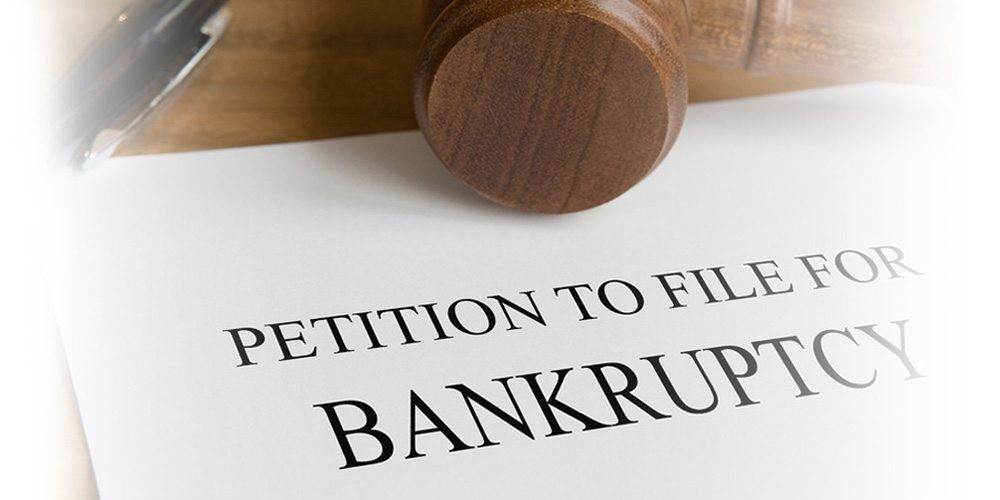In the American legal system, the law constantly evolves and changes as novel issues lead to new application of the existing law. Judges apply the law to the facts and circumstances of cases and issue written opinions that often have binding and precedential effect. The same is true of bankruptcy law, where dedicated judges interpret and apply the Bankruptcy Code. One recent bankruptcy development comes from the United States Supreme Court interpreting and applying the Automatic Stay provision in 11 U.S.C. §362. Eagle-eyed readers will recall I wrote about the Automatic Stay and the Third Circuit Court of Appeals’ interpretation in a precedential opinion from In re: Denby-Peterson (941 F.3d 115 (2019)). I wrote then about how the Automatic Stay begins at the time of filing a bankruptcy case to prevent creditors from taking action to collect debts incurred prior to the debtor filing for bankruptcy protection. I also discussed the danger of debtors delaying to file for bankruptcy protection when they are faced with a creditor taking their property.
“The Hidden Cost of Delaying to File for Consumer Bankruptcy Protection” discussed the impact of a debtor filing for bankruptcy protection after a creditor has repossessed a piece of property and whether the lender is then required to return the property to the debtor as a result of the Automatic Stay protections. The Third Circuit Court of Appeals joined a minority of courts in determining that the Automatic Stay only operates to prevent an “act to exercise control” and by merely retaining property, the creditor does not violate the Automatic Stay. This has been the status quo for Pennsylvania debtors since 2019. This article seeks to update that guidance with the newest case law.
In January 2021, the Supreme Court decided City of Chicago v. Fulton (141 S. Ct. 585 (2021)) which turned on facts similar to Denby-Petersen. Here, the city of Chicago, Illinois had impounded vehicles for cause of unpaid parking tickets and refused to return the vehicles after the debtors filed for bankruptcy protection. The debtors alleged a violation of the Automatic Stay under 11 U.S.C. §362(a)(3) and the Supreme Court examined the issue up on appeal. The Supreme Court’s analysis was very similar to the Third Circuit’s analysis in Denby-Petersen by holding that a violation of the Automatic Stay requires an “affirmative act” to “disturb the status quo” and therefore sustain an a violation of the automatic stay for obtaining or exercising control over the subject property. Further, the Supreme Court found that reading 11 U.S.C. §362(a)(3) to include a creditor retaining property that they lawfully obtained prior to the bankruptcy filing as a violation of the Automatic Stay would render the turnover provision in 11 U.S.C. §542(a), which allows a debtor to compel turnover through a separate adversary proceeding, to be surplusage. The Supreme Court therefore enshrined the principle that mere retention of property by a creditor, without more, is not an Automatic Stay violation.
In October 2021, the Honorable Judge Mark J. Conway issued an opinion in In re: Margovitch (Bankr. M.D. Pa. 2021) for the Middle District of Pennsylvania. This case turned on similar facts to Fulton and Denby-Petersen. In this case, Southlake, the creditor, successfully sued Margovitch, the debtor, prior to his filing for bankruptcy protection and obtained a judgment against him. Southlake then proceeded to attach Margovitch’s bank account and he filed for bankruptcy protection before Southlake could obtain the funds. After filing, Southlake refused to release the attachment and Margovitch complained that this was a violation of Automatic Stay provisions in 11 U.S.C. §362(1)-(6). Judge Conway’s opinion an applied analysis similar to the Supreme Court’s analysis in Fulton to subsections (1)-(2) and (4)-(6) and applied an analysis similar to Denby-Petersen to subsection (3). Judge Conway held that Southlake did not violate the Automatic Stay provision because they merely retained the attachment without any further affirmative act(s).
How do these cases impact the current bankruptcy landscape? Great question. For Pennsylvania debtors, this will sound familiar. Owing to the Third Circuit’s opinion in Denby-Petersen, creditors were already permitted to retain lawfully repossessed property from provided the creditor obtained the property before the bankruptcy case was filed. So long as the status quo was not disturbed and the creditor made no overture to liquidate the property, they were in the clear. For Maryland debtors, this may be a change. Maryland is in the Fourth Circuit Court of Appeals’ jurisdiction and, as of the time Denby-Petersen was decided, the Fourth Circuit had not touched upon the issue of Automatic Stay violations of this nature. The Supreme Court’s decision in Fulton, however, applies that analysis of 11 U.S.C. §362(a)(3) to all Bankruptcy courts across the United States. Therefore, Pennsylvania and Maryland debtors are both subject to the same application of the law. Judge Conway’s opinion from Margovitch impacts Pennsylvania debtors by applying a similar analysis to the other protections of the Automatic Stay in subsections (1)-(2) and (4)-(6), instead of just subsection (3) as Fulton does.
What do these decisions mean for debtors in Pennsylvania and Maryland who may be considering filing for bankruptcy protection? Another great question. First, wherever possible, file the case before your property is repossessed, foreclosed, attached, seized, or levied. Filing for bankruptcy protection right away will guarantee a creditor will be stopped from taking any of those untoward actions. Second, if you are filing the case after an attachment, levy, repossession, foreclosure, or other seizure, I urge you to carefully consider how much you need the property in question. If you can do without or if it significantly improves your financial situation to let go, filing for bankruptcy protection can help there too. If it is absolutely necessary, then I urge you to carefully consider how long you can be without that property. In a Chapter 7 case, the creditor has no obligation to turnover that property before discharge and redemption. In a Chapter 13 case, the creditor has no obligation to turn over the property prior to the bankruptcy court confirming your Chapter 13 plan which must also cure the overdue balance. If the property is absolutely necessary and you cannot wait to retrieve it for some reason, discuss your options with a qualified bankruptcy attorney. In many instances, your attorney may be able to file a motion to compel turnover under 11 U.S.C. §542(a). Beware, however, that these delays may be costly in both time without your property and legal fees.
In conclusion, the law is constantly changing and adapting. If you are considering filing for bankruptcy and potentially have property that your creditors may levy, attach, seize, repossess, or foreclose, DO NOT wait to talk with a qualified bankruptcy attorney. The experienced, proven, and trusted bankruptcy attorneys at Mooney Law stand ready to assist you and answer your questions. Consultations for bankruptcy are always free at Mooney Law. To schedule a FREE consultation, call us today at 833-MOONEYLAW or at 717-200-HELP. You can also visit the firm website at https://www.mooney4law.com.



